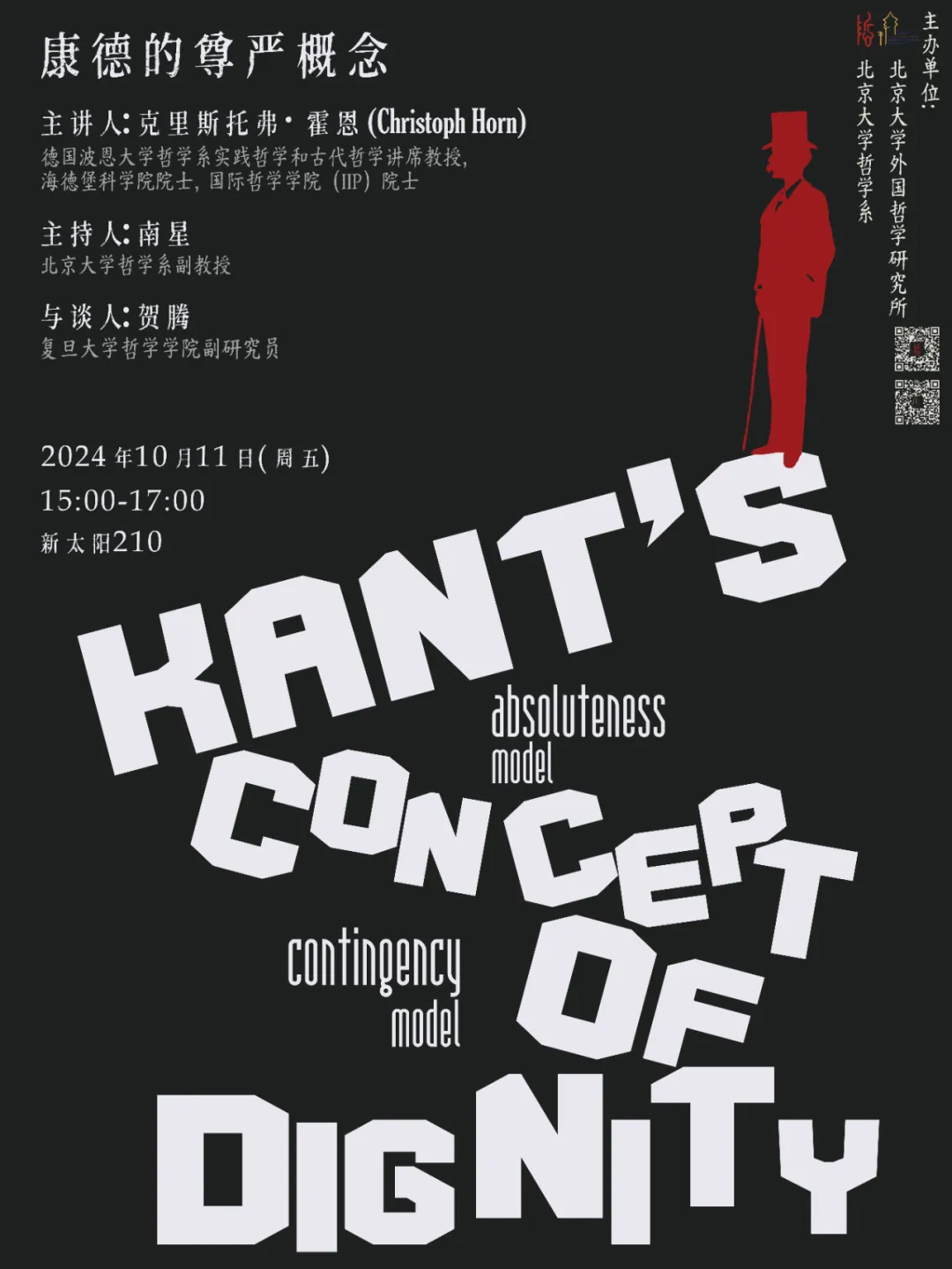
10.11: Kant’s Concept of Dignity 康德的尊严概念
Source:
Date:2024-10-06

讲座题目:
Kant’s Concept of Dignity (康德的尊严概念)
主讲人:
克里斯托弗·霍恩(Christoph Horn)
讲座时间:
2024年10月11日(周五)15:00-17:00
讲座地点:
北京大学新太阳学生活动中心210会议室
克里斯托弗·霍恩(Christoph Horn),德国波恩大学哲学系实践哲学和古代哲学讲席教授,海德堡科学院院士,国际哲学学院(IIP)院士。主要研究方向为古代哲学(尤其是柏拉图和亚里士多德)与实践哲学(尤其是康德、道德哲学和当代政治哲学)。近年主要成果有Aristotle’s Metaphysics Lambda: New Essays, Die Philosophie der Antike, Bde. 5.1-3, Einführung in die Moralphilosophie等。
Human dignity can principally be understood in two different ways: either according to an absoluteness model or according to a contingency model. Whereas the absoluteness model rests upon the idea that every human being possesses a dignity which needs not be acquired and can never be lost and which makes him or her a legitimate and inviolable bearer of human rights, the contingency model emphasizes the social embeddedness of ascribing dignity to an individual, taking dignity as a sort of social status that is always in danger of being lost. The absoluteness model is implicitly present especially in the U.N. declaration of human rights (10 Dec 1948) and in several further fundamental political documents (e.g. in the first article of the German constitution from 1949). The contingency model is typically held by recognition theorists, e.g. in the Hegelian or Frankfurt tradition of political philosophy; its focus is on phenomena of social appreciation and humiliation respectively.
Which of these two concepts of dignity (or maybe which further model) do we find in Kant? As many scholars believe, Kant should be regarded as defending the absoluteness model – perhaps even as its historical inventor. But it was the monograph of Oliver Sensen, Kant on Human Dignity (2011), which shed serious doubt upon this assessment. Sensen pointed out that Kant, in many passages particularly in the Doctrine of Virtue, followed the Stoic and Ciceronian idea which amounts to some sort of contingency model. Dignity seen from this perspective is a level of excellence of somebody’s prestige or social status; it can be gained and lost, it can be attributed to someone or denied, and it is merit-based and can hence be forfeited. On the other hand, we have several passages in which Kant quite unambiguously maintains the absoluteness of human dignity by contrast with a relative value or a contingent price something might have. How (if at all) can these two evidences from Kant be reconciled?
TOP





